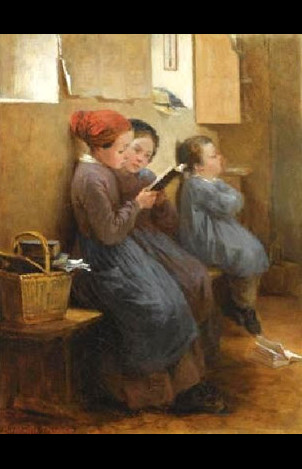Literacy Blogs
- All
- 3-cueing
- academic learning time
- academic vocabulary
- accommodations
- accountability testing
- Active View of Reading
- adolescent literacy
- afterschool programs
- alphabet
- amount of instruction
- amount of reading
- argument
- assessment
- auding
- author awareness
- automaticity
- balanced literacy
- beginning reading
- Book Buddies
- Book Flood
- challenging text
- classroom organization
- close reading
- coaching
- cohesion
- Common Core State Standards
- complex text
- comprehension strategies
- content area reading
- context analysis
- curriculum materials
- Daily 5
- decoding
- departmentalization
- DIBELS
- dictionary skills
- digital texts
- disciplinary literacy
- dyslexia
- early interventions
- effective teachers
- Emily Hanford
- executive function
- family literacy
- fingerpoint reading
- foundational skills
- graphic novels
- guided reading
- heterogeneous grouping of students
- homework
- improving reading achievement
- independent reading
- independent reading level
- informal reading inventories
- informational texts
- instructional level
- invented spelling
- jigsaw instruction
- knowledge
- leadership
- learning disabilities
- Lexiles
- linguistic comprehension
- listening comprehension
- literacy charities
- literacy policy
- literary interpretation
- main idea
- morphology
- motivation
- narrative text
- National Early Literacy Panel
- nonsense words
- oral language
- oral reading fluency
- paraphrasing
- Pause, Prompt, Praise (3P)
- personalized learning
- phonemes
- phonemic awareness
- phonics
- press and media
- principals
- prosody
- Readers' Workshop
- reading comprehension
- reading disabilities
- reading intervention
- reading levels
- reading models
- Reading Recovery
- reading research
- reading skills
- reading strategies
- reading to children
- reading wars
- reading-writing relations
- remedial reading
- rereading
- Response to Intervention
- Scarborough's Rope
- science of reading
- seatwork
- semantics
- sentence comprehension
- sequence of instruction
- set for consistency
- set for variability
- shared reading
- shared reading
- sight vocabulary
- simple view of reading
- Simple View of Reading
- small group instruction
- social studies
- sound walls
- Special Education
- speech-to-print phonics
- spelling
- stamina
- summarizing
- Sustained Silent Reading
- syllabication
- syntax
- syntax
- testing
- text complexity
- text interpretation
- text reading fluency
- text structure
- theme
- think-pair-share
- trauma
- visualization
- vocabulary
- word walls
- writing
- zone of proximal development (ZPD)
How Much Time Should We Spend on Comprehension and Phonics?
Blast from the Past: This timely piece is about time and how to spend it during language arts instruction. Many teachers spend too little time on some components of literacy--because they get wrapped up in doing particular activities rather than teaching particular things. The most effective classrooms have clear goals and they make sure the kids know what those are. If you really want kids to be fluent, having them read only a page or practicing with something that they can already read fluently won't help you to that goal. Likewise, a phonics lesson in which kids spend two minutes ...
Is There a Place for Commercial Reading Programs in Common Core?
My district has decided not to purchase a core reading program since we are now teaching Common Core. Does CCSS really prohibit the use of commercial instructional materials? No, CCSS neither requires the use of commercial programs nor does it prohibit such use. That is strictly a local decision. So should we use a program? I’ve long argued that teachers need programs. The development of extensive lesson plans and tracking down appropriate materials each day is overwhelming for most teachers, and it introduces great variability into classroom instruction. One of the things I learned as director of reading in Chicago was that having ...
Why Should Close Reading Be Advantaged?
When writing about close reading, I have often mentioned that there are multiple approaches to reading. Most elementary teachers and many secondary English teachers don’t know much about these different approaches or why they have been controversial. Thus, when someone takes pot shots at close reading they are surprised and wonder what may be going on. Towards trying to clarify such disagreements, and to expose the limitations of close reading (and why we wouldn’t want to embrace it too tightly), I have sketched out three major approaches to reading touted by English Departments over the past century. I conclude with my ...
Staying Warm During Cold Reads
Teacher Letter: I've heard you speak and think I know your position on Background Knowledge and Common Core "New Yorker" style book introductions. But was wondering if you could dedicate a post about the term "Cold Reads" as referred to in the Common Core and address the arguments made by the teacher author of this article on the topic. Shanahan Response: Thanks. I hadn’t seen this post by Jeremiah Chaffee, an English teacher. I've only focused on his “cold reading” remarks. First, Common Core doesn’t use the term, “cold read.” It appears to be meant as a pejorative for close reading, though it only characterizes ...
How Many Standards Should a Lesson Address?
This question came in from a reader asking specifically about some units proposed by the Education Department in Louisiana. I'm sharing my response with everyone because I think the confusion in Louisiana is general across the nation. Question: The Education Department in Louisiana (Louisiana Believes) has a scope and sequence that teachers can use to teach the CCSS in ELA. Teachers have informed me there are too many standards in each ELA unit to teach in order to effectively teach them. Of the 10 standards in each of the following: reading literature, reading information, and writing, most of them are listed in each ELA ...
To Theme or Not to Theme, That is the Question
Dear Dr. Shanahan, My colleagues have been debating the use of thematic units in the Common Core. Several of them argue that this practice does not fit a "standards based curriculum." They argue that essential questions and enduring understandings need to be specific to the ELA standards. So, for example, a unit with an essential question for a 3rd grade should look something like this: Unit Topic: Ask and Answer Questions Essential Question: How do readers ask and answers questions from the text? Why is it important to use evidence from the text to support your answer? The other side on this debate argues that there must be a ...
To Multi-Text or Not to Multi-Text in Close Reading
Teacher question: You say close reading requires students to rely solely on the text during reading. But many of the Common Core Standards (and the PARCC and Smarter Balanced prototypes) require that students compare texts. This seems contradictory. What’s up? Shanahan response: This is a bit confusing. The basic idea of close reading is, just as you say, that interpretation is to be based entirely on the text itself. Readers aren’t to turn to author biographies or other works in that author’s oeuvre. No Cliff’s Notes either. Even prefaces, blurbs, statements of context, and explanatory notes provided by the publisher are verboten. These interpretive ...
Text Dependency is Too Low a Standard
Common Core advocates make a big deal out of the idea that questions should be text dependent. This means you shouldn’t be able to answer a question without reading the text. By all means ask questions that require reading. However, this is a very low standard. Many text dependent questions simply aren’t worth asking. Last week I met a teacher who was trying to generate every literal question she could—long lists of questions. She was interpreting close reading as “thorough reading” and she was making sure that her first-graders missed nothing; no detail was too trivial for her text dependent questions. However, close ...
Coordinating PARCC Frameworks and Common Core Standards
Teacher question: I, and many of my fellow high school English educators, need some (more) clarification on the 70/30 split. Our state has adopted the PARCC model and our district is implementing the model for the English classes. Under the section "Extended Texts" on the model it reads as follows: 11th A - Literature B - US foundational text (Is this a full-length book taught in the English class? If 'yes' please specify an example. If no, please indicated what course/subject would teach this text.) C - American Literature D - Informational (Is this a full-length book taught in the English class? If 'yes' please specify ...
More on the Lindsay Lohan Award: Or Why Some Days I Should Stay in Bed
Not surprisingly my entry about the PARCC decision to read the reading test to some students received a big response from readers. Some notes from parents of special education students were wonderfully supportive (though they struggled to be because they are torn by the issue--both wanting their kids to forego these tests and wanting them to experience full inclusion including taking these tests). Those letters were not posted to my site and given their personal nature I'm not putting them up here either. Other responses weren't as supportive. In fact, some respondents were pretty heated up at my view. I usually just respond to those letters on-line as they come ...



-The-reading-boy.jpg)




